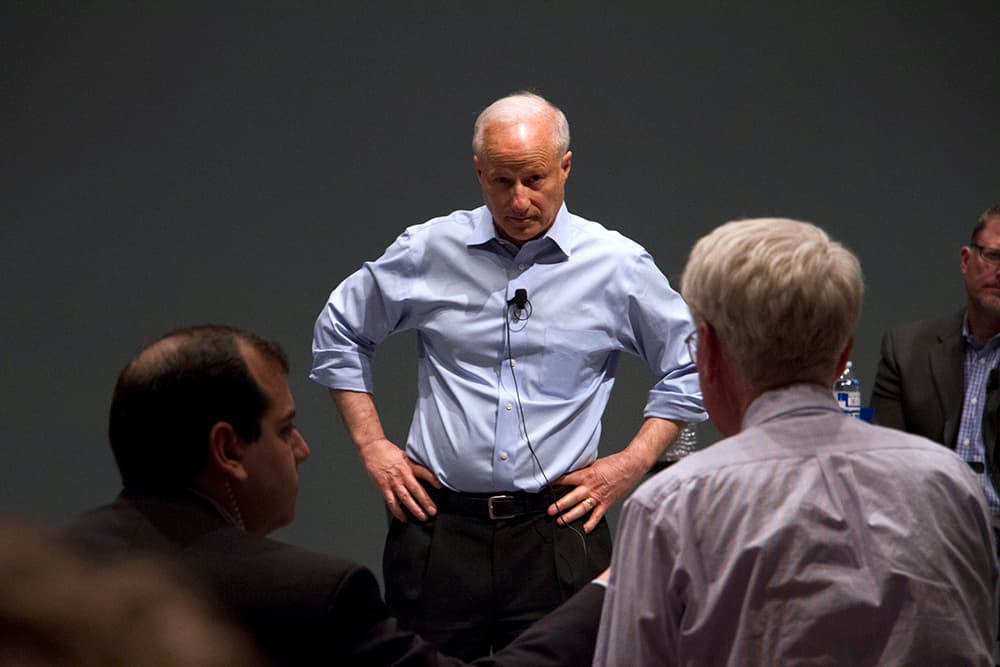
BRIGHTON — It's Round 2 for Colorado Rep. Mike Coffman, who, unlike many congressional Republicans, is engaging once again with anxious voters in his suburban Denver district.
Coffman, who hosted a contentious April town hall, holds another at 6 p.m. Tuesday at Prairie View High School in Brighton. The event comes after the GOP-led Congress failed to act on President Barack Obama's Affordable Care Act.
And it comes as his Colorado GOP colleague, Rep. Ken Buck, declared the Republican Party dead in a Denver Post commentary. Buck said the party has accomplished little in Congress and "no longer has a vision for a better America."
Arizona GOP Sen. Jeff Flake, in a forthcoming book, "Conscience of a Conservative," echoes that judgment, saying conservatives have abandoned limited-government tenets for their own self interests in a dysfunctional government. Democrats are equally to blame, Flake says.
Like Coffman's April event, Tuesday's attendees need tickets and photo IDs to get in. No signs bigger than a sheet of paper are allowed. A lottery determines who can ask questions. "No yelling, shouting or disruptive behavior," read his invitation.
Coffman, first elected in 2008 in a district that now has more Democrats than Republicans, previously avoided town halls, favoring private meetings with constituents or more scripted telephone town halls.
He bucked the House Republican majority by voting against health care legislation that the nonpartisan Congressional Budget Office said would deprive millions of insurance. While favoring replacing the law, he wants to ensure continued coverage for pre-existing conditions.
Coffman also has criticized President Donald Trump's threats to end subsidies to insurance companies. The congressman has opposed efforts to cut Medicaid coverage not only for those who enrolled under the Obama law's Medicaid expansion but for those covered before the law.
Coffman has called for separating debate over cutting health law taxes for the wealthy from changes to the health law and including it in tax reform legislation. He wants a bipartisan effort to support struggling state health insurance markets.
Colorado state auditors say Colorado's own health insurance exchange, which enrolls 178,000 people, may be financially sustainable for the next few years. But participating insurers have proposed drastic premium hikes for individuals next year, and many counties, especially on the Western Slope, have just one insurer in the exchange.










